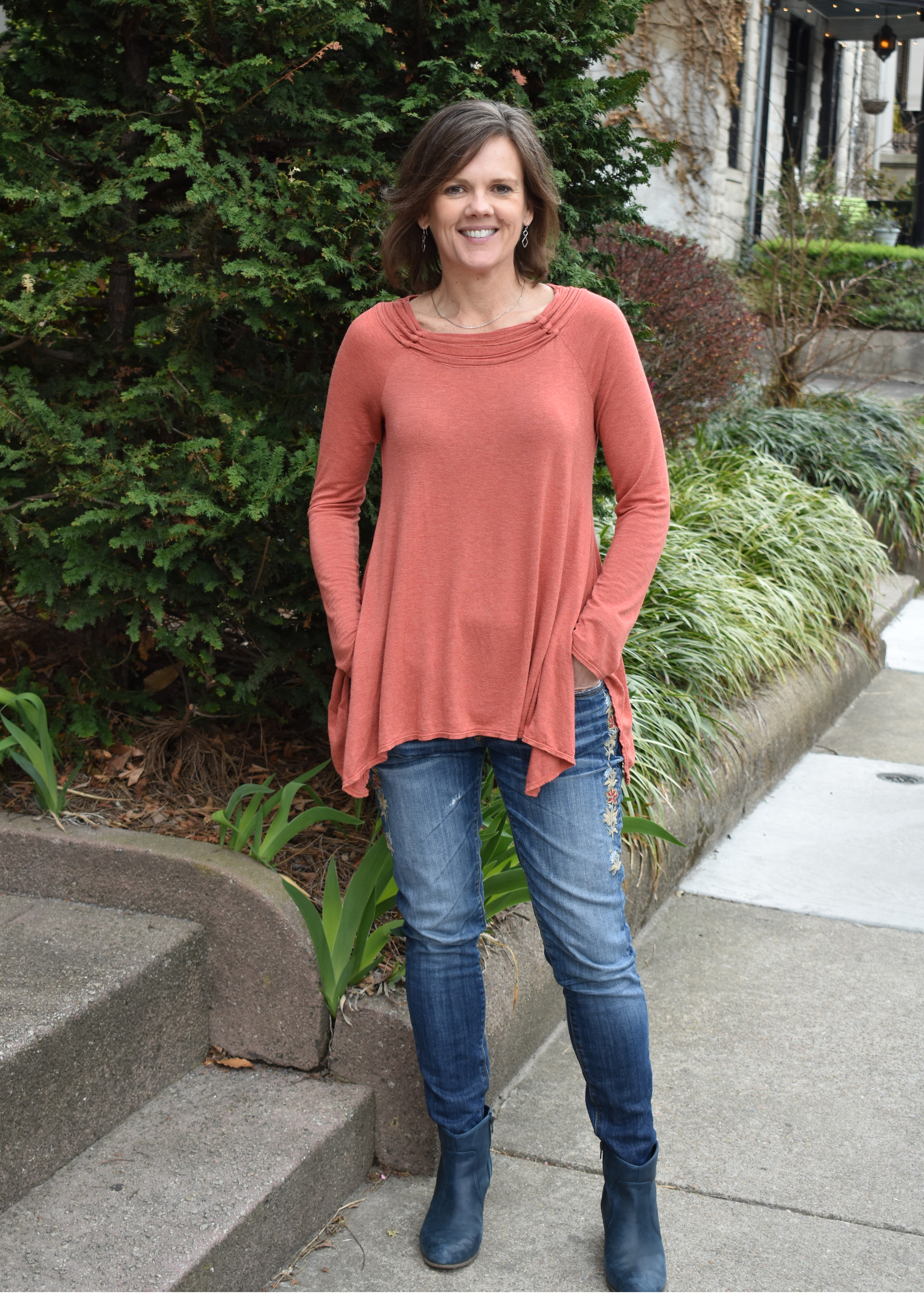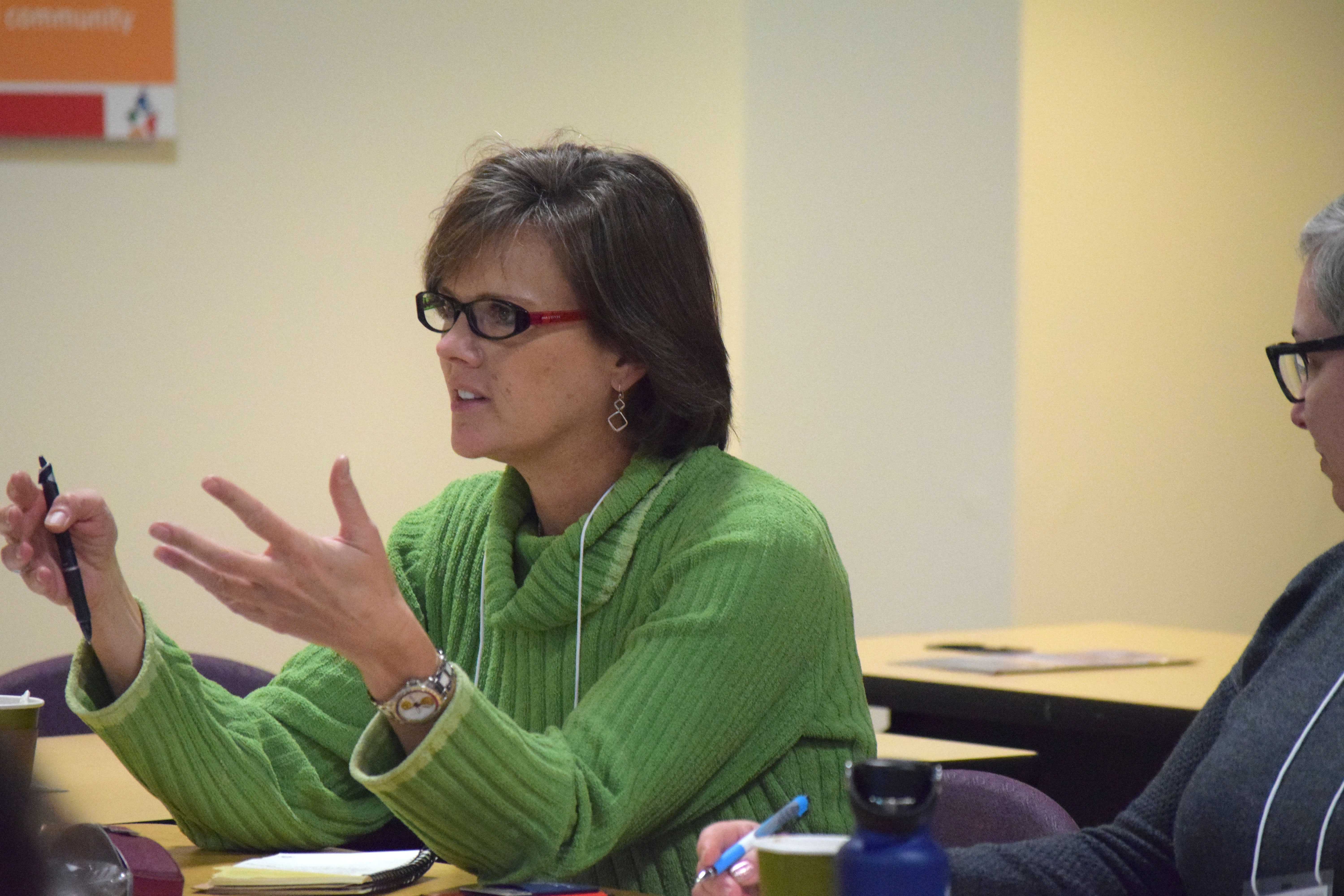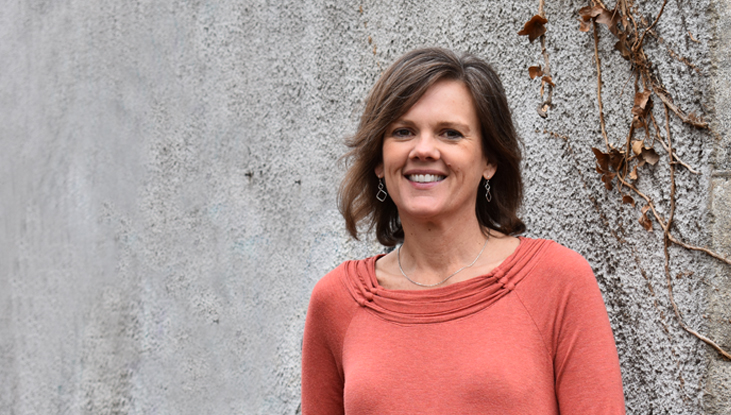Communities as agents of change
By Jena K. Gray
“I have never thought about oral health in this capacity. I am realizing the extent to which access and other oral health issues come down to disparities around race and class - and gender as well,” shares Sarah Jane Brubaker, Ph.D.
Dr. Sarah Jane Brubaker is part of VCU’s Institute for Inclusion, Inquiry and Innovation (iCubed) within the Oral Health in Childhood and Adolescence transdisciplinary core. She is associate professor of criminal justice, director of the Ph.D. in public policy and administration program and certificate in gender violence intervention through the L. Douglas Wilder School of Government and Public Affairs.
Dr. Brubaker, who received her Ph.D. in sociology from University of Delaware, became involved in health-related disparities during her dissertation work on teen pregnancy. She interviewed teen mothers, some who were pregnant and some who had recently given birth, to better understand how they perceived and utilized the healthcare system.
Experiences of violence often weaved these young women’s stories together and the link between these marginalized girls and women prompted Dr. Brubaker to look more in-depth at the criminal justice system. A system wherein, Dr. Brubaker believes, “we criminalize actions that are a reflection of being poor or marginalized.”
As a sociologist, Dr. Brubaker studies the ways in which social systems like the criminal justice system or the healthcare system fail to meet the needs of marginalized groups of people. The intersection of inequalities related to gender, class and race, she has found, continues to surface within the contexts of poverty. Such is the case in the work she does through iCubed’s Oral Health in Childhood and Adolescence transdisciplinary core.
iCubed unites diverse faculty from various disciplines to develop new, transdisciplinary frameworks to tackle community-identified issues within the Commonwealth. This holistic approach strays away from using the same theories for the same issues but rather, “brings different ideas, different perspectives and experiences.” By assessing problems from these distinct perspectives, Dr. Brubaker expresses, “I think we might see a new solution.”

Alongside Dr. Brubaker’s specialty in sociology and the criminal justice system, iCubed’s oral health core consists of VCU faculty who specialize in pediatric dentistry, oral health promotion and community outreach, counseling, medical anthropology, oral epidemiology, social work and health administration. iCubed’s model works only in the context of community partnerships wherein communities are involved and maintain their agency.
Communities in Schools of Richmond has been a key community partner in connecting the iCubed team with the Henrico Student Health and Wellness Committee, a partnership with Henrico County Public Schools and the Henrico Education Foundation. This partnership has begun a relationship between iCubed and one Henrico County public school to identify barriers, and solutions to those barriers, for oral health care experienced by the students of this school.
The growing trend of those with higher incomes moving to cities has caused property values to increase beyond the ability for low-income families and individuals to pay. This surge in prices has forced many to move out of the city to certain suburbs where they can afford to live.
“The context in which we find ourselves at this Henrico County public school, we are seeing the same levels of poverty as within the city,” shares Dr. Brubaker.
In the case of this particular Henrico County public school, 100% of the students qualify for free and/or reduced lunch. Most of the students live in nearby government housing and face challenges associated with living in poverty such as exposure to violence and increased childhood stress.
“We’ve been working with Henrico County Education Foundation and Henrico County Social Services,” explains Dr. Brubaker, “to identify key leaders in the community and to help make connections. From there, we will do a community needs assessment, meeting with the community leaders.”
“The people from Henrico County have been tremendous. They are attuned to what’s going on without victim-blaming – relaying the fact that these parents care, that they want their kids to be safe and healthy but that they’re working two to three jobs and don’t have the transportation to attend meetings.”
The iCubed Oral Health in Childhood and Adolescence transdisciplinary core is analyzing existing data on Medicaid usage, access to care, transportation, and Medicaid providers in the area in order to have a framework of the neighborhood’s access to resources. Then, the team will complete interviews, surveys, and focus groups about the community’s experiences with oral health and access to determine which barriers to oral health care the neighborhood experiences.
“Once the contextualized barriers are identified, we will work toward finding ways to provide oral health care,” explains Dr. Brubaker.

Key to enacting change, however, is bringing policymakers into the conversation so that the structural inequalities which allowed the problem to persist can begin to be rectified. There could be enormous societal benefit, suggests Dr. Brubaker, in cultivating relationships between researchers with evidence-based interventions and legislators who enact policy.
Sociologists typically analyze and evaluate macro-level systems and societal structures; yet, Dr. Brubaker has been re-evaluating this as an exclusive framework. She recognizes that small, micro-level changes for local communities could make important impact.
“Focusing our efforts on community-engaged research, where communities ask the questions and name the problems that researchers need to address,” says Dr. Brubaker, “could enable smaller scale change that might be meaningful for these communities.”
“Then,” shares Dr. Brubaker, “we can possibly replicate these solutions, programs and interventions, this positive change, at a larger scale.”
About VCU Institute for Inclusion, Inquiry and Innovation (iCubed)
iCubed at Virginia Commonwealth University (VCU) is a cutting edge institute focused on catalyzing collaborative connections between the university and the community at large through innovative academic and research programs. Our transdisciplinary core teams collaborate with key community members in order to develop holistic solutions to 21st century urban challenges within the Commonwealth. For more information about iCubed or to apply to one of the transdisciplinary core teams, please visit: icubed.vcu.edu.


